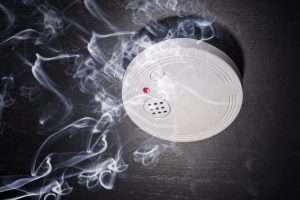With winter in full swing, the experts here at Norcia would like to discuss some of the most important safety tips for the season. With cooking at home, indoor activities and family vacations, there are a few safety tips you should keep in mind to help you, your family and your home stay safe this winter. And, in the event something does happen at your home, our Wisconsin public adjusters are here to help with all of your insurance needs. But first, be sure to take these essential cold weather precautions:
Test Smoke and Carbon Monoxide Detectors
With cold weather also comes the constant running of your heating system and the use of other heating sources. It is so important to check your smoke and carbon monoxide detectors this time of year. Also make a habit of changing their batteries. Some people use daylight saving time as a reminder to check their smoke or carbon monoxide detectors and change their batteries. Home fire alarms should last about 10 years, but it is important to check on them consistently to ensure they’re working as they should to avoid a potentially dangerous situation.
Heating Inspection
Another major aspect of the annual maintenance of your home heating system is to check the safety limits and burners for proper operation.
Dryer Vent Cleaning
This is a big one for winter. Clothes dryer vents should be checked for a buildup of lint. If drying times are getting longer, it means the vent may be getting restricted and not allowing the proper airflow through the appliance. Dryer fires occur in the thousands every year, so it is important you do what you can to keep your home’s dryers running safely. If a fire does occur and causes damage to your home or property, be sure to contact the fire department right away. And, when you need help filing your insurance claim, seek assistance from our experienced public adjusters.
Chimney Inspection
Another area of the home that requires inspection are your wood-burning fireplace chimneys. They should be checked and cleaned of soot buildup to ensure proper air flow.
Home Security
Take the time to prepare for winter security and avoid the mess of a break-in, especially if you plan to go on vacation. If you do have a break-in, it is important to contact the authorities right away. Our public adjusters can help with the next steps.
These are just some of the most important safety tips to follow this winter. Are you interested in learning more about how our public adjusters in Wisconsin can help you in the event of a fire or other damages? Call Norcia Insurance Consultants at 866-512-LOSS (5677) or Schedule a Free Consultation.






